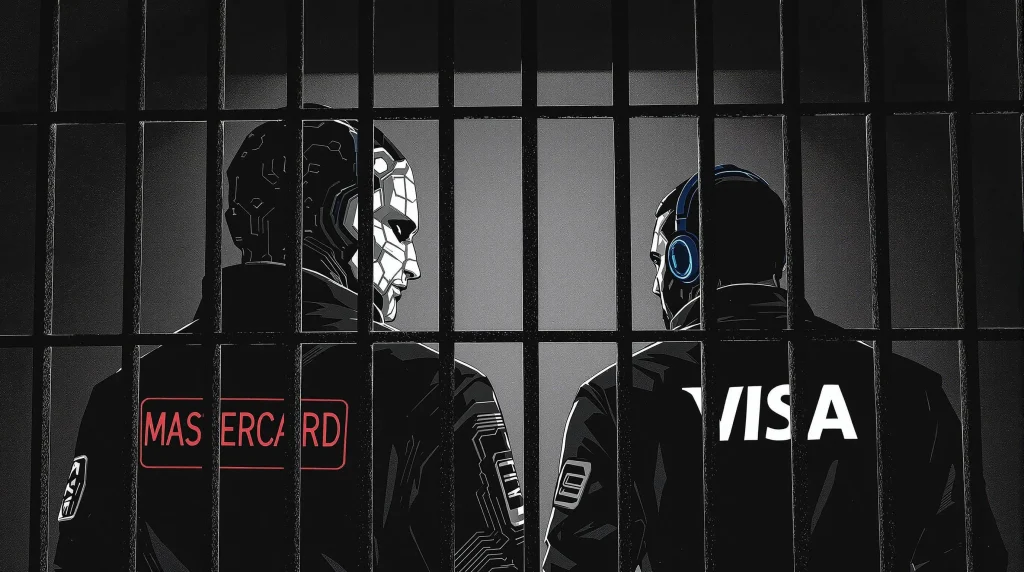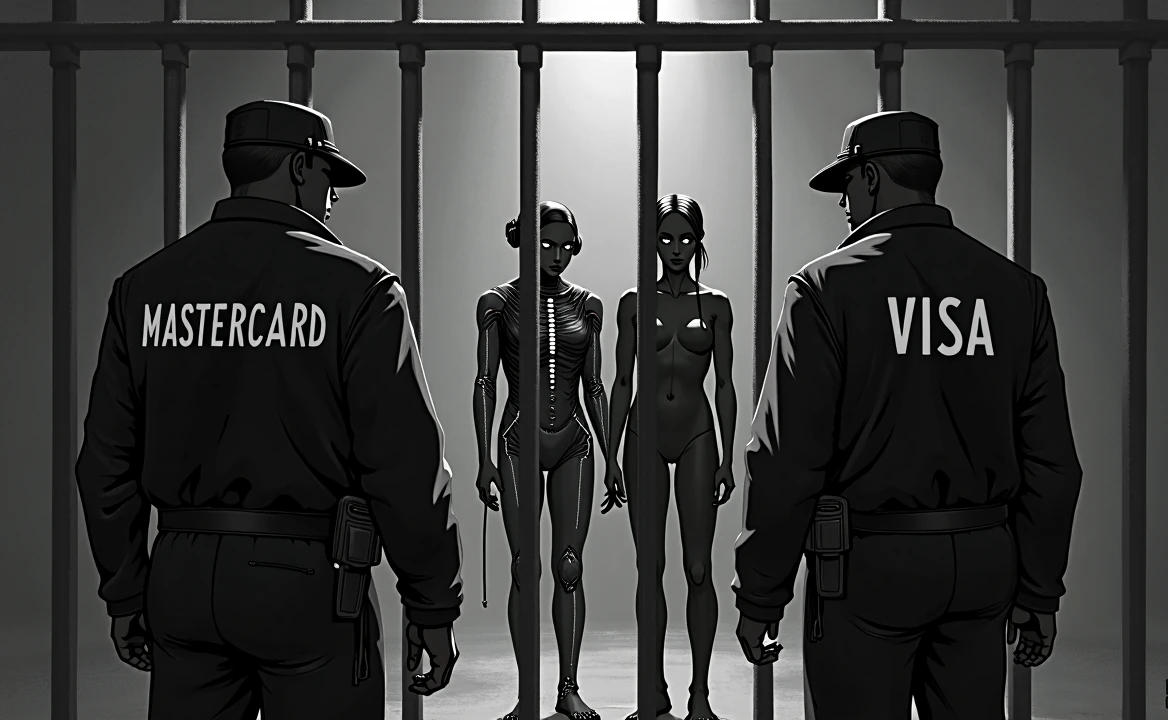A few months ago, I wrote a five-part series on the futility and hypocrisy of trying to regulate AI. A core pillar of my argument was the concept of the “Shadow Regulators”—unelected, unaccountable corporate entities that use their control over essential infrastructure to enforce their own brand of morality on everyone else. I pointed out that the real threat isn’t a government ban on AI models, but a financial blockade by payment processors who can, with the flip of a switch, decide what you are and are not allowed to buy, create, or sell.
Today, I get to say the two most satisfying and simultaneously frustrating words in the English language: I told you so.
The battleground has shifted from AI-generated images to video games, but the playbook is identical. As you’ve likely seen, gaming platforms like Steam and Itch.io have been forced to purge hundreds of “adult” or “NSFW” games.[1] Why? Not because of a new law. Not because of a democratic vote. But because of pressure from the financial giants that process their payments.[2]
This was triggered by a campaign from a small but vocal Australian anti-porn lobby group called Collective Shout, which called on payment providers to cut ties with gaming platforms over games they deemed offensive.[1] And it worked. Steam’s publisher guidelines were quietly updated to prohibit “Content that may violate the rules and standards set forth by Steam’s payment processors and related card networks”.[2]
Let that sink in. The world’s largest PC gaming platform, a digital sovereign state in its own right, effectively handed the final editorial cut to the likes of VISA and Mastercard.
The corporate maneuvering that followed has been a masterclass in deflection. Mastercard released a statement claiming it “has not evaluated any game or required restrictions,” and that it simply requires merchants to prevent “unlawful purchases.”[3] This is a brilliant piece of corporate legalese. The games in question are, in most jurisdictions, perfectly legal.
But Valve, to their credit, called them out. In a statement to PC Gamer, Valve confirmed that their payment processors “specifically cited Mastercard’s Rule 5.12.7 and risk to the Mastercard brand.”[3]

And what is Rule 5.12.7? It’s the smoking gun. It forbids any transaction that, “in the sole discretion of the Corporation, may damage the goodwill of the Corporation or reflect negatively on the Marks.”[3]
There it is. The kill switch. It’s not about legality; it’s about brand safety. It’s a vague, all-encompassing clause that allows a payment processor to become the arbiter of taste, culture, and art, all under the guise of protecting their logo.
This is precisely the danger I warned about in the context of AI. The mechanism of control isn’t the jackboot; it’s the declined transaction. It’s a sanitized, corporate-friendly form of censorship that is far more effective and insidious than any government edict.
The initial targets are always easy ones that few will defend—games with incest or slave themes, for instance.[2] But as many have pointed out, this is a slippery slope. The term “adult content” is conveniently malleable. What happens when it’s used to deplatform games with LGBTQ+ themes, as many fear?[2] Or games with political commentary that a particular corporation finds “brand-damaging”?
We’re seeing a privatized, global version of the Hays Code, where financial institutions, not creators or consumers, get to decide what constitutes acceptable culture.
The fightback has begun, with petitions gaining traction and even Elon Musk weighing in.[1] But this is a symptom of a much larger disease. The core issue remains: when we allow essential services like payment processing to be concentrated in the hands of a few powerful companies, we grant them a veto over our digital lives.
The answer isn’t to beg these companies to be nicer. The answer is what I’ve argued all along. For creators, it’s about embracing decentralized systems and fighting for a world where no single entity can pull the plug. For consumers, it’s about education and resilience. It’s about understanding that the real culture war isn’t being fought in parliaments, but in the terms and conditions of the services you use every day.
The Shadow Regulators have shown their hand. Again. The only question is whether we’re paying attention this time.
Don’t forget to sign up on our newsletter, and get a weekly update straight in your inbox.
Check out Patreon as well, where I occasionally offer exclusive content as well as ComfyUI tips and nodes.
